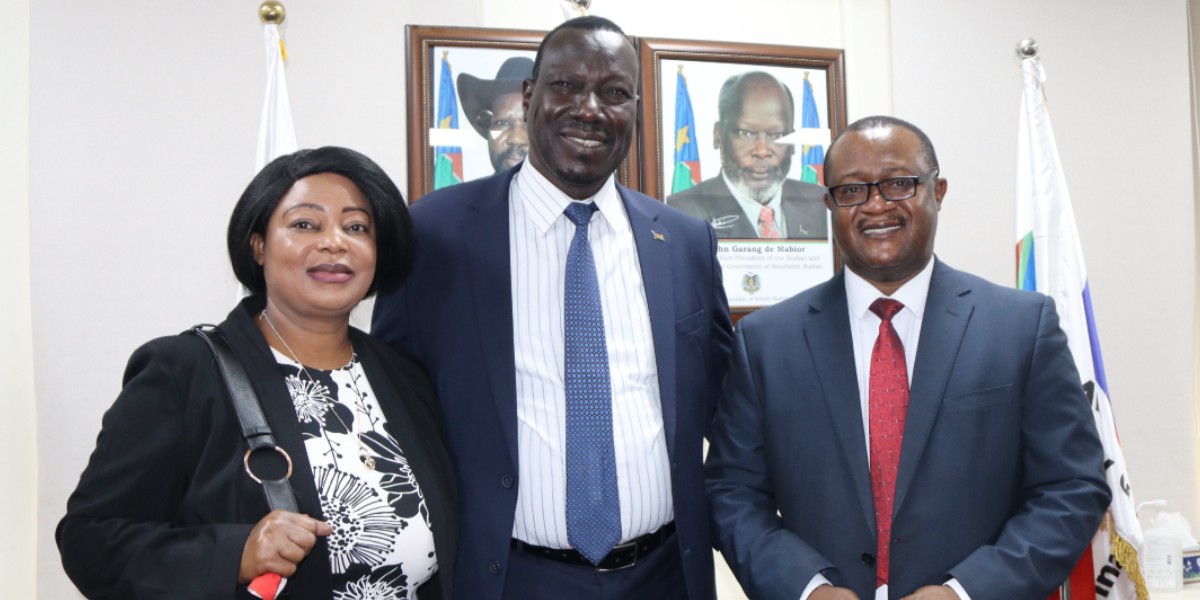UN Women signs a tripartite agreement with the African Development Bank and the Government of South Sudan to promote women and youth’s economic empowerment
Date:
UN Women and the Government of South Sudan continue their longstanding partnership of empowering women and youth in South Sudan with the signing of a new project. The project promotes women and youth’s economic empowerment through their effective integration and participation in the private sector growth and development.
With the USD 2.145 million support from the Government of South Sudan, through the African Development Bank, UN Women will work together with partners to strengthen women and youth’s resilience to build business and financial management capacities to improve their income and agency to live a more fulling life.
“UN Women sees this as an ample opportunity to strengthen women and youth’s access to sustainable income and livelihoods”, says UN Women’s Country Representative Peterson Magoola.
The programme, which will be implemented by UN Women in close collaboration with the Ministry of Youth and Sports and the Gender and Youth Cluster, is expected to create more than 1500 jobs for youth and women in South Sudan. This will be done through the establishment of 300 women and youth-led medium and small enterprises (MSEs), providing interest free loans to women and youth-led MSEs, and have women and youth-led MSEs increase their revenue. In addition to youth and women, the programme also targets ex-combats, returnees, and persons with disabilities. The programme builds upon the ongoing women’s economic empowerment initiatives, access to income and sustainable livelihoods supported by UN Women.
“Women of South Sudan are very daring and hardworking and with this support they are geared to improve their lives for the better”, emphasizes the Minister of Finance and Economic Planning Honorable Agak Achuil Lual.

The protracted conflict in South Sudan has disproportionately affected women and youth’s income and livelihoods. Women and youth form the largest proportion of the South Sudanese population, yet most of them remain unemployed and living below the poverty line. Their economic participation is hampered by multiple factors, including high illiteracy level, lack of adequate and quality skills especially vocational, entrepreneurship, and business and financial management skills, and poor access to productive resources, such as land, production inputs, technology, and financing.